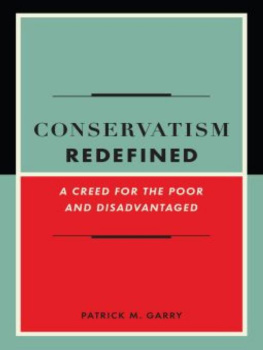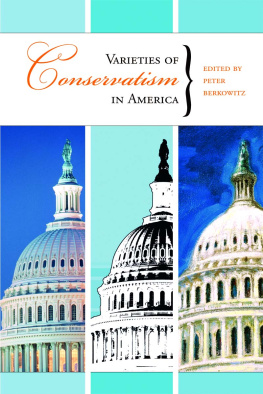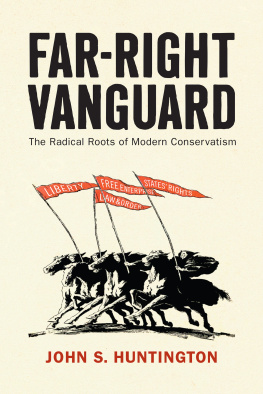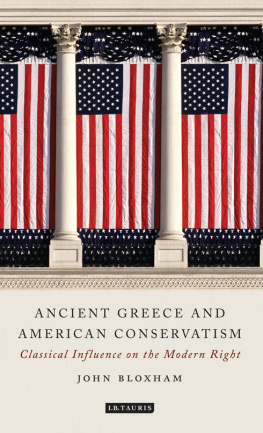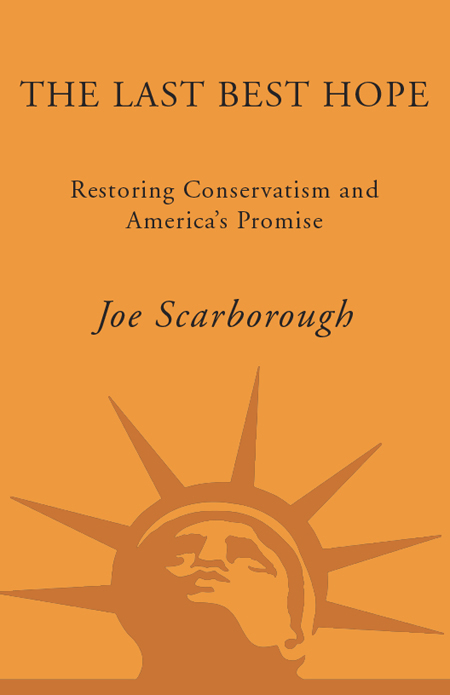Introduction: The Way Back
B y the second year of his presidency, Abraham Lincoln should have been a demoralized man.
Lincolns military command had stumbled badly through the opening stages of the Civil War. By 1862, the embattled president faced defiance from his generals, failure from his armies, and humiliation across the globe.
By spring, France and Britain were on the verge of recognizing the Confederacy. By summer, Robert E. Lee was chasing Union forces across the Potomac. The presidents army would be forced to make a hasty retreat to prepare for the defense of the nations capital.
But at the end of that terrible year, Abraham Lincoln delivered a message to Congress that was as defiant as it was determined.
On December 1, 1862, that great man told Congress that history left them no choice but to preserve the American Union as the last best hope on earth.
The dogmas of the quiet past are inadequate to the stormy present, Abraham Lincoln said. The occasion is piled high with difficulty, and we must rise with the occasion. As our case is new, so we must think anew and act anew. We must disenthrall ourselves, and then we shall save our country.
As it was in Lincolns time, so it is in ours.
American leaders do not face a nation divided by war or shamed by the institution of slavery. But as with every generation since 1776, we have no choice but to face the difficult occasion that is piled high before us and rise to that challenge.
Our leaders cannot escape history any more than they can ensure our future unless they begin again to think anew.
It is especially critical at this chapter in our nations history for conservatives to set aside the dogmas of the quiet past and instead explain their vision to a new generation.
This book will lay out that vision.
Our challenges are great, but they can be met by men and women of good faith who are guided by restraint and prudence instead of rabid, unyielding ideologies.
It is time again for conservatives to lead America into the future. But before we figure out how to do that, lets first talk about how conservatism has been defined throughout our history.
As we begin, let me ask you to set aside everything Americans think they know about what it means to be conservative.
Forget that conservatives are now associated with military expansion, Wall Street recklessness, and ideological conformity.
Instead, try to imagine that conservatism is not a political movement at all, but rather a guiding set of principles grounded in reality and restraint, and flexible enough to sustain America through the next century. Moving forward, we must embrace our first principles so that we can revive what Russell Kirk once called the forgotten genius of conservatism.
British statesman Edmund Burke, the movements founder, gained international attention 200 years ago with his stinging critique of the French Revolution.
Burke and his followers championed customs and conventions that promoted social stability across the ages while declaring intellectual war against dogmas of all designs. It was, after all, rabid ideologues who very nearly torched Notre Dame and destroyed French civilization.
Mr. Kirk summed up Burkes distrust of dogma in his classic The Conservative Mind.
A terrestrial paradise cannot be contrived by metaphysical enthusiasts; yet an earthly hell can be arranged readily enough by ideologues of one stamp or another.
William Buckleys biographer, Sam Tanenhaus, believes that Burke would be shocked by modern conservatism. After all, the movements founder had a belief system that was not based on ideological guidelines but rather on his contempt for all ideologies.
Conservatives, for the better part of the last 200 years, followed Burkes lead by shunning rigid dogma and instead attaching themselves to reality, restraint, custom, and convention.
But that approach is a far cry from where Republicans have ventured over the last generation.
ANSWERING RADICALISM WITH RADICALISM
For a quarter-century, we conservatives have allowed ourselves to be defined too easily as rigid ideologues, blindly faithful to an unyielding agenda.
As a member of the 1994 Republican revolution, I plead guilty as charged.
When conservatives stormed Capitol Hill that year, we sought nothing less than the dramatic transformation of Washington and America. We believed that the radicalism of the 1960s needed to be counterbalanced by radicalism from the right.
I remember feeling elated as incoming GOP congressmen delivered one speech after another that endorsed radical change. We would seek nothing less than the destruction of the 1960s ethos and the man who most embodied that decade: Bill Clinton.
Our drive for change led to a balanced budget, welfare reform, and the remaking of Congress as a political institution.
But the way we fought those political battles also resulted in a government shutdown, bitter partisanship, and the impeachment of a president.
More frustrating was the fact that our perceived extremism also helped reelect in 1996 the same President we ran against two years earlier. We had saved Bill Clinton from political death by coming across as radical to swing voters and making him again appear to be a moderating force in American politics.
We had answered radicalism with radicalism, and the costs were high.
Conservatives lost their bearings again after September 11. President Bushs disciplined response in Afghanistan devolved over time into a foreign policy approach that guaranteed the U.S. military alone would end tyranny across the world.
The Republican presidents second inaugural address contained utopian pronouncements so grand that they would have made Woodrow Wilson skittish.
Once again, politicians who described themselves as conservatives answered radicalism with rigid dogma. And once again, the victories gained came at a terrible cost.
My conclusions shouldnt be seen as a criticism of George W Bush, but rather a reminder to us all. Besides, it would be disingenuous to suggest that I had been anything other than the most conservative of conservatives over the past 15 years.
While in Congress, I


